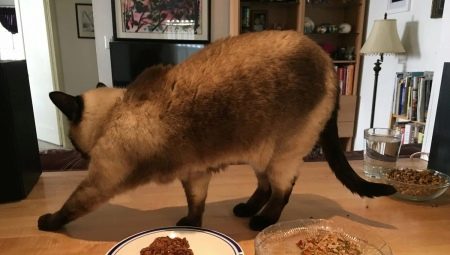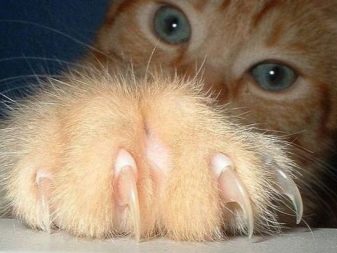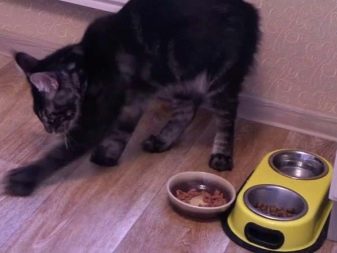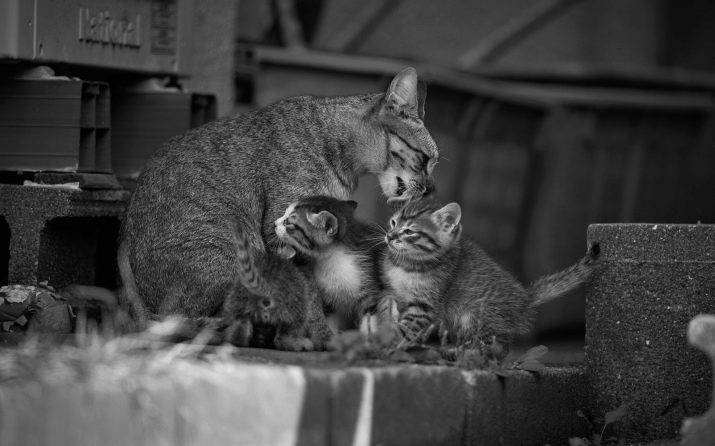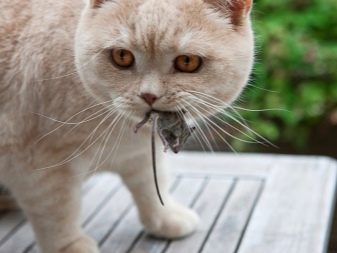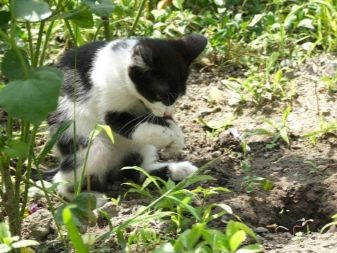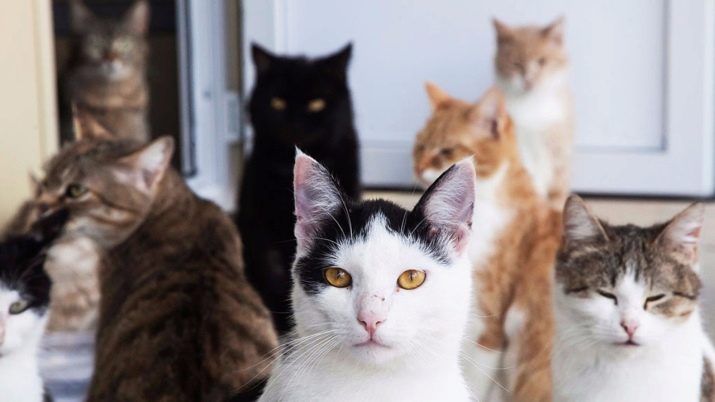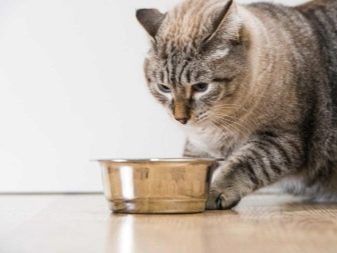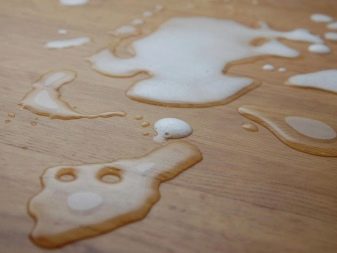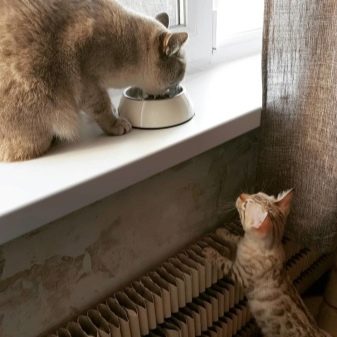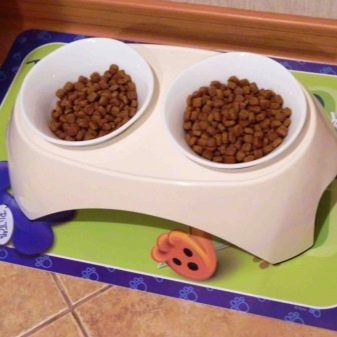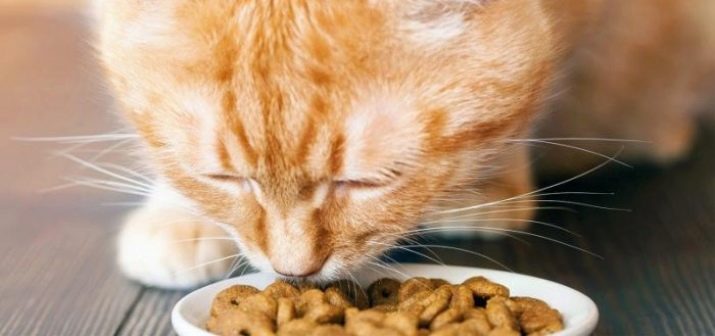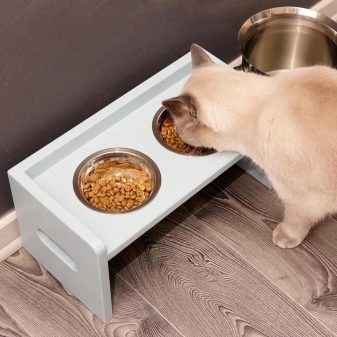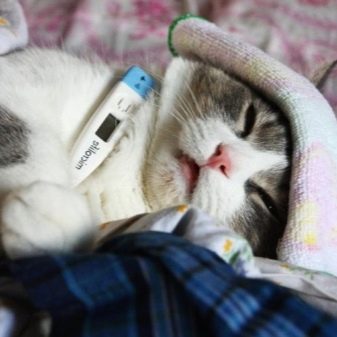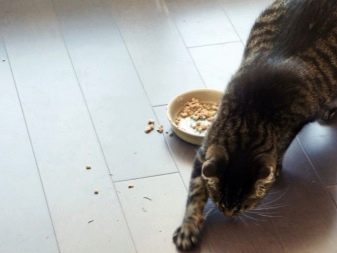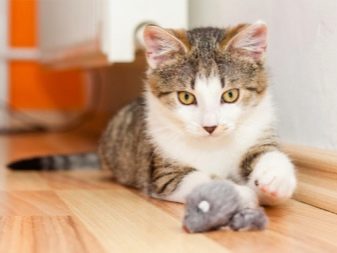Four-legged friends, as you know, walk by themselves. They are mysterious, playful, at times elementary intolerable, but thousands of people practically adore fluffy pets. But for the owners it remains a mystery why the cats, after they have eaten, bury food. This phenomenon was probably met by anyone with a beloved mustache who lives in an apartment. A cat or cat suddenly begins to dig around its own bowl, funny claws on the floor surface, which the owners of the bed in their own kitchen, trying to bury their lunch.
The action of the fluffy buddies is associated with cat instincts or habits, that is, the acquired skills. No need to worry or invent horrible reasons for what is happening - your cat "listens" to its own intuition. But if interest is absorbing you or you need to realize the promises of an unusual action, read our article.
Absolute reflexes and their significance
Any animal endures all reflexes due to absolute reflexes. Cats, kittens hunt and strive for this "from nature." Purring, pawing in place, supple rubbing against the arm are also instincts. There are a number of solid, absolute instincts that control the life of the pet as a whole: breathing, coughing, sneezing, sucking, chewing, illness, vomiting.
The mother cat not only tries to bury the food every time, but can also hide it in the most unforeseen places. For example, a piece of meat steak behind the freezer. The burying of food can be associated with almost any absolute reflex.
Instincts
Experts believe that cats have saved some old instincts. So, a tame cat is predisposed to very unrestrained actions, for example, burying food. What are the reasons?
The trivial root cause of this action is associated with the desire to conceal the remnants of food from rivals to satisfy their own hunger.
Instinct - the desire for satiety. When the animal is hungry or not fed up, the pet begins to dig the floor, tries to "dig up" supplies from it, into which they were allegedly buried.
Digging and burying food is manifested only in the autumnal seasons or in spring. This is due to the presence of beriberi and an increase in appetite.
The burying of food or its residues can be explained by the desire of a cat to tidy up. The cats are very clean - they will bury their toilet and leave a clean place after their lunch.
Another reflex of instillation of food is associated with smell. This means that if a “flavor” emanates from food — an unbearable, unacceptable odor resulting from spoiled food, in this case, four-legged pets also bury the food.
In the event that your home friend refuses high-quality dry food, digs in and ignores it in various ways, the root cause is hidden in the cat's own preferences.
Quite possibly, he doesn’t like your pet's tail pet or he decided to arrange a fasting day for himself (yes, it happens with cats).
And if more than one tailing pet lives in an apartment, then the burying of food is, first of all, desire to hide it from an opponent.
Habits
Habits and rules - this is the result of experienced skills, both positive and negative. The main household members of the cat family are accustomed to going to the toilet tray. Many may have a logical question: "How exactly does the tray involve the instillation of food?"
Almost directly.As a rule, bowls with food and water are close, and at times they are combined. Not all owners have time to buy a velcro rug. When bowls are combined, the cat often climbs to the trough and splashes water, making his way to the food.
Seeing a puddle on the floor and realizing that the owner does not like it, the cat will try to very quickly eliminate the "offense": she digs the floor, and then she knocks over a cup and buries water with food.
There is still the root cause of instilling a bowl of food - the cat does not like her eating place. There are a lot of bases: the pet there does not feel protected, it is cool or some unpleasant odor repels it. Also, do not place cups of cat food near the washing machine: the sound made by the device can immediately frighten the animal, as a result of which it will experience discomfort and fear.
Remove the stove to another place, cover the eating place with a rug, you can use a thick oilcloth, do not distract the cat when it is having lunch, and carefully make sure that other family members do not distract it. A more effective way is to put bowls of food and water on a window sill or on a rug near her stove bench, protect your pet from possible irritants.
Hungry memories
There are cases when a pet tries to bury a bowl of food every time. It is likely that in the past he was very hungry and still can not forget this unpleasant stage of his life. This strangeness must be treated with understanding. Only affection, caress, calmness and stability will help your friend free himself from the fear of hunger.
Antipathy
Some "diggers" are driven by antipathy. Do you remember how carefully tidy cats bury their own excrement so that the “fragrance” does not spread? Also, the cat can painstakingly bury and food - the one that she did not like.
Thus, if a pet snorts and contemptuously pats its paw, scrapes the floor, look at its bowl - perhaps it was given a spoiled product or something with a pungent smell (garlic, onion or lemon peel) got into the dry food.
If the bowl is located in the kitchen not far from the garbage pail, the not very pleasant smell coming from there unnerves the caudate - in this regard, the pet may also begin to bury the bowl.
Tasty food
In addition to the above reasons, cats can bury their home food if they like it. In this way, he experiences and demonstrates gastronomic delight. The dish seemed so delicious to the animal that the genes of the forefathers awoke in it, and the pet decided to arrange a supply. Please note that wild cats also hide not all prey, but only the most tasty.
Well, connoisseurs of good cuisine, of course, only value what they like best. If the cat starts to dig after having eaten or had dinner with great appetite, it means that he appreciated your kindness and care.
Conclusion
So let's summarize what causes the instillation of food:
- unsuccessful place where there is a bowl;
- low quality products;
- stress due to loud and unpleasant sounds, the presence of other animals or annoying people;
- the cup is very dirty;
- low floor temperature;
- depressed pet position;
- disease and malaise.
Playing with food is the original method to attract the owner. Often, pets do not have enough attention from the owners, who occasionally are at home and ignore them. Scolding animals for playing with food is contraindicated.
If your pet digs in, buries a bowl with food, then First of all, felinologists advise to make sure that a four-legged pet has no stress. It is necessary to provide the cat with its own place so that other animals would not be able to approach its food. Also near the bowl is not allowed to put loud technical devices. In addition, the place where the animal eats should be kept clean.
To wean the cat to dig the floor, one must look after him, follow his feeding, allocate portions of food at one time, carefully check the quality of the products.
If you see that the animal again took up the old, then divert his attention, giving a favorite toy.
Details about the reasons for the behavior of the cat, you will learn from the video below.
